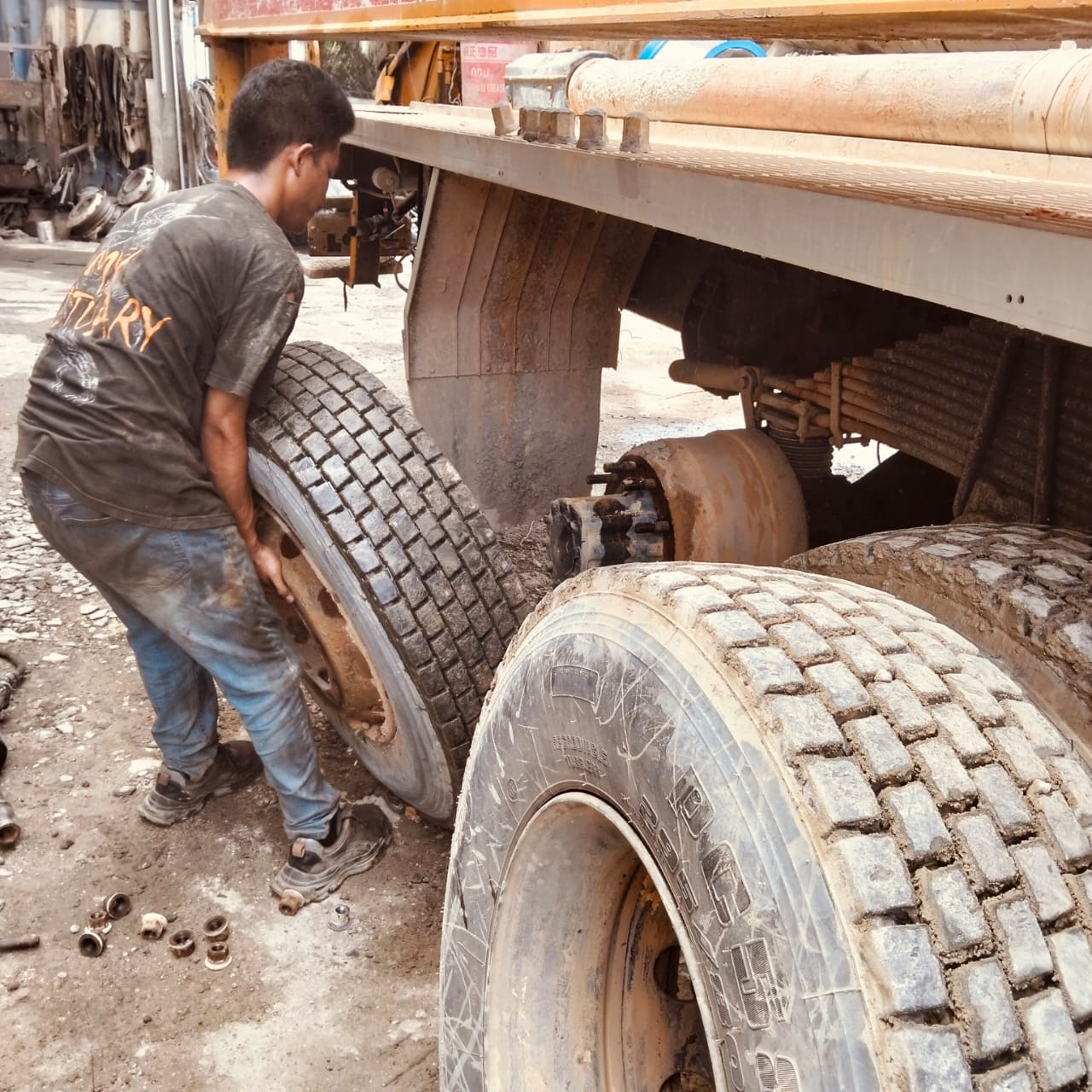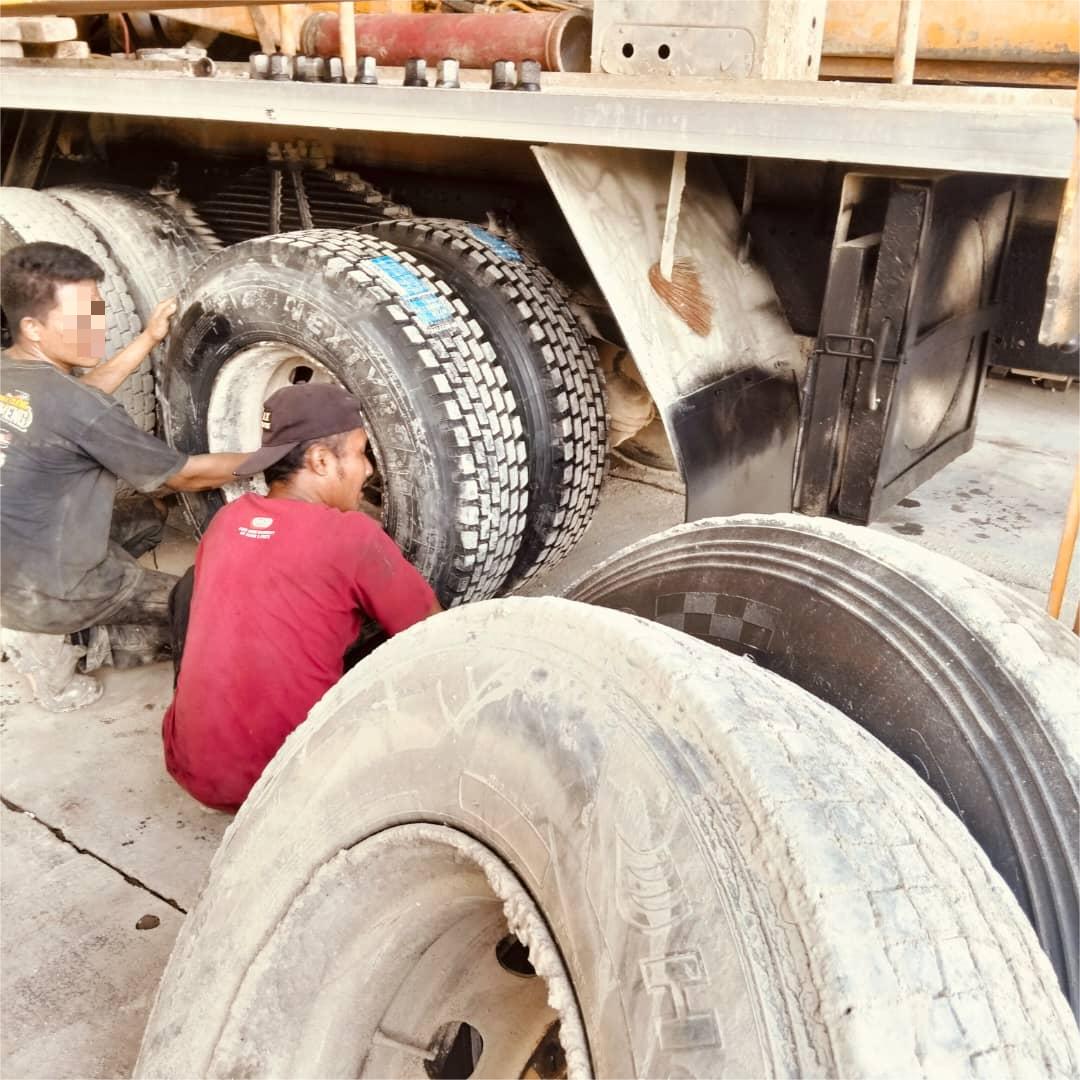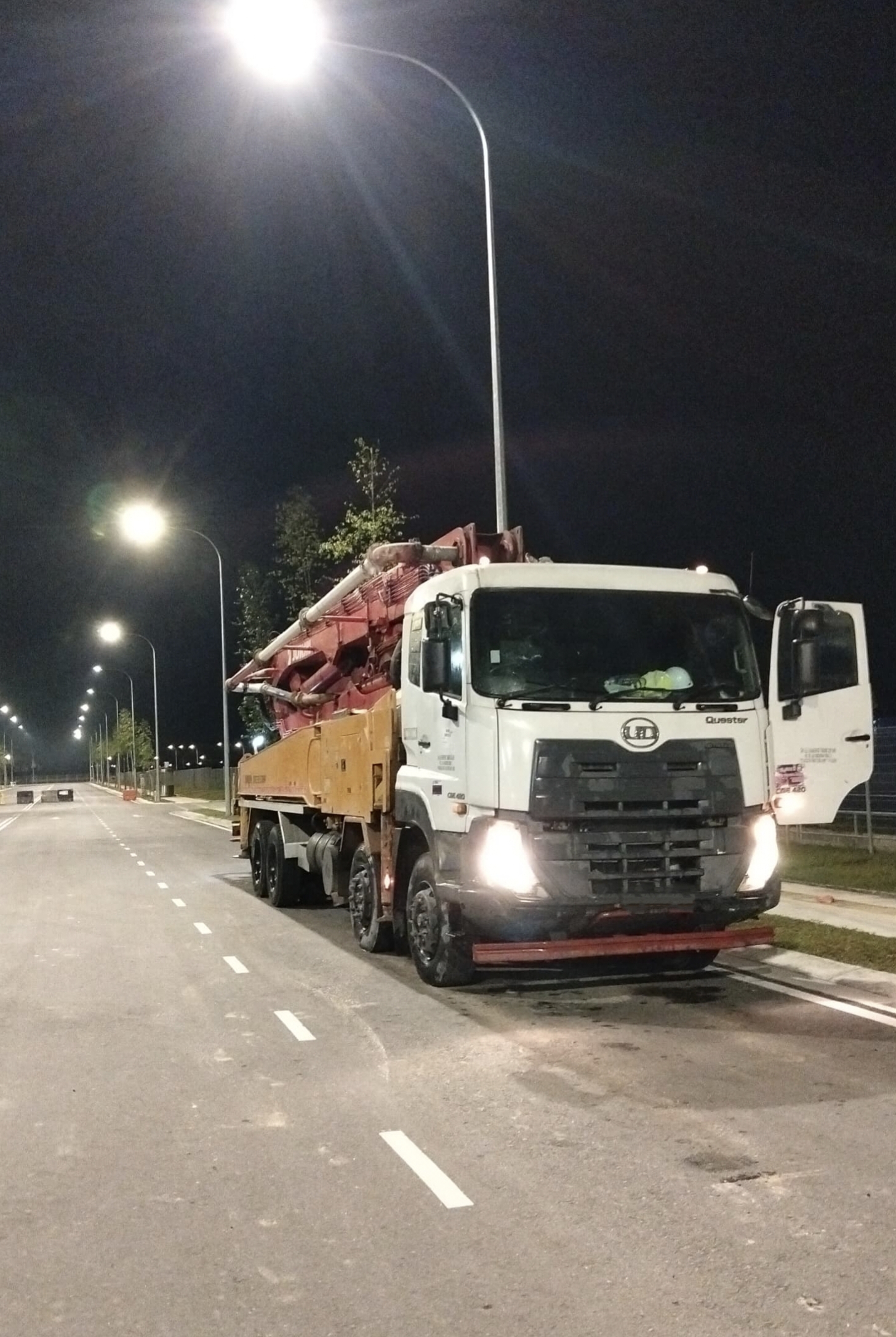Why Rent Construction Machinery Instead of Buying?
Why Rent Construction Machinery Instead of Buying? A Strategic Business Decision
In the dynamic world of modern construction, businesses consistently face critical decisions that impact their financial health, operational efficiency, and overall project success. Among the most significant of these is the perennial dilemma: should we invest substantial capital into purchasing heavy machinery, or is renting a more prudent and flexible approach? From our professional vantage point, with extensive experience across countless projects, we unequivocally believe that opting for the rental of construction machinery presents a compelling array of advantages that often outweigh the perceived benefits of ownership.
The landscape of construction is ever-evolving, demanding adaptability, precision, and access to specialized tools for diverse tasks. Whether it's the efficient placement of concrete, the meticulous application of screed, or the rapid deployment of plaster, the right equipment at the right time is paramount. This article delves into the strategic reasons why renting, rather than buying, can be the smarter choice for businesses looking to optimize their resources, mitigate risks, and stay competitive in a demanding industry.
The Unrivaled Advantages of Renting Construction Machinery
We have observed firsthand how renting empowers businesses with a level of flexibility and efficiency that ownership rarely matches. Here are the core advantages we consistently highlight:
1. Financial Flexibility and Capital Preservation
One of the most immediate and significant benefits of renting is the avoidance of hefty upfront capital expenditure. Purchasing a single piece of heavy machinery, such as a state-of-the-art Concrete Pump Truck or a high-capacity Sand Pump, can tie up hundreds of thousands, if not millions, of dollars. This capital, when locked into depreciating assets, is unavailable for other critical business needs like expanding operations, investing in skilled labor, or securing new contracts.
By renting, we convert a massive capital outlay into manageable, tax-deductible operational expenses. This significantly improves our cash flow, allowing us to maintain a healthier balance sheet and allocate funds to areas that yield higher returns or respond to immediate project demands. This financial agility is invaluable in a sector where project timelines and budgets can shift rapidly.
2. Access to the Latest Technology and Specialized Equipment
The construction technology landscape is constantly innovating. Newer machines offer enhanced efficiency, better fuel economy, improved safety features, and often, specialized capabilities. Owning equipment means we are often stuck with older models that may lack the cutting-edge features of newer versions. Upgrading to the latest technology through purchase is a continuous, expensive cycle.
Renting, however, grants us immediate access to an expansive fleet of modern, well-maintained machinery. Need a Spray Plastering Machine for a large commercial interior job this month, but a highly precise Screed Pump for a flooring project next month? Renting makes this seamless. We can choose the exact specification of, say, a Mortar Pump optimized for a particular type of render, without committing to its long-term ownership. This ensures we always have the most appropriate and efficient tools for the job, enhancing productivity and quality.
3. Elimination of Maintenance, Repair, and Downtime Burdens
When we own machinery, we are responsible for all aspects of its lifespan: routine maintenance, unexpected repairs, parts replacement, and the associated labor costs. These can be substantial and unpredictable. Equipment breakdowns directly translate to costly project delays and idle workforce hours.
With rental agreements, the rental company typically bears the responsibility for maintenance and repairs. They ensure the equipment is in optimal working condition before delivery. Should a breakdown occur, it's their responsibility to fix or replace the machine, minimizing our project downtime and eliminating unforeseen repair expenses. This frees up our internal resources, allowing our teams to focus on core construction activities rather than equipment management.
4. Solving Storage and Transportation Logistics
Heavy construction machinery requires significant storage space, which often means leasing or owning large yards or warehouses. These facilities come with their own set of costs, including rent, utilities, security, and property taxes. Transportation to and from job sites also adds a layer of complexity and expense, requiring specialized trucks, trailers, and skilled operators.
When we rent, the rental company handles the storage and often the transportation of equipment directly to our job site. This eliminates our need for dedicated storage facilities and the associated logistical headaches and costs. We simply specify where and when we need the equipment, and it arrives ready for use.
5. Reduced Depreciation and Resale Value Concerns
Construction equipment, like most assets, depreciates significantly over time. Its value declines due to wear and tear, technological obsolescence, and market conditions. When we decide to upgrade or dispose of owned equipment, we often face a loss on its resale value, and the process of selling it can be time-consuming.
Renting completely bypasses the concern of depreciation. We pay for the use of the asset, not its declining value. This allows us to avoid a significant balance sheet liability and the administrative burden of managing asset disposal.
6. Enhanced Operational Efficiency and Adaptability
The ability to scale our equipment fleet up or down based on project demand is a critical competitive advantage. A large project might require multiple Concrete Pump Trucks simultaneously, while a smaller job might only need a single Mortar Pump. Renting provides this unparalleled flexibility. We only pay for the equipment when we need it, avoiding the inefficiency of having expensive machinery sitting idle during lean periods. This precise matching of equipment to project needs maximizes utilization and minimizes waste.
When Buying Might Seem Appealing (and Why Renting Often Still Wins)
While the appeal of owning machinery might stem from a desire for immediate availability and having familiar equipment, the hidden costs often undermine these perceived benefits. For instance, even for long-term projects, the total cost of ownership (including financing, depreciation, maintenance, insurance, storage, and eventual resale loss) often surpasses the cumulative rental fees. Unless a piece of equipment, like a standard excavator or loader, is used almost daily, year-round, for its entire economic life, the utilization rate rarely justifies the sunk cost of ownership for most businesses.
A Look at Specialized Equipment and Their Benefits
The benefits of renting become even more pronounced when considering highly specialized machinery.
- Concrete Pump Truck: Essential for high-rise buildings and large-volume pours, renting a Concrete Pump Truck allows us to achieve precise and efficient concrete placement without the immense capital outlay and maintenance demands of owning such a complex machine.
- Screed Pump: For perfectly leveled floors, a Screed Pump is indispensable. Renting ensures we have access to varying capacities and types suited for different screed mixes and project scales, maintaining quality control without long-term commitment.
- Sand Pump: Crucial for specific aggregate handling or dewatering applications, a Sand Pump, when rented, provides a cost-effective solution for specialized tasks that may not be a daily requirement, avoiding idle asset costs.
- Spray Plastering Machine: Revolutionizing internal and external finishes, a Spray Plastering Machine significantly increases application speed and uniformity. Renting allows us to deploy this technology for specific projects where speed and large area coverage are critical, without the perpetual maintenance of an owned unit.
- Mortar Pump: Versatile for rendering, grouting, and plastering, a Mortar Pump can be tailored to various material types and consistencies. Renting ensures we have the right size and type for each unique application, preventing over-investment in a multi-purpose machine that might only be used intermittently for a specific task.
By renting these specialized machines, we gain immediate access to advanced capabilities, enhance our project diversity, and remain agile in responding to market demands.
Comparative Analysis: Rent vs. Buy
To further illustrate our point, here's a comparative overview:
| Feature/Cost | Renting Construction Machinery | Buying Construction Machinery |
|---|---|---|
| Upfront Capital | Low/None (monthly rental fees) | Very High (significant investment required) |
| Maintenance & Repairs | Handled by rental company (included in fee) | Responsibility of owner (unpredictable costs, downtime) |
| Storage & Logistics | Generally handled by rental company | Owner's responsibility (cost of space, transportation) |
| Depreciation & Resale | No depreciation risk, no resale hassle | Significant depreciation, potential loss on resale, selling effort |
| Technology Access | Access to latest models and specialized equipment | Stuck with existing models, costly upgrades |
| Project Flexibility | Match equipment precisely to project needs; scale up/down easily | Limited by owned fleet; idle equipment is a cost |
| Insurance | Typically covered by rental provider's umbrella policy (though project-specific insurance may be advised) | Owner's full responsibility (higher premiums) |
| Financial Impact | Operational expense (tax-deductible), improves cash flow | Capital expense (large asset on balance sheet), ties up funds |
Strategic Considerations for Renting
To maximize the benefits of renting, we recommend considering the following:
- Reputation of the Rental Provider: Partner with reputable companies known for reliable, well-maintained equipment and excellent customer service.
- Rental Agreement Terms: Understand the duration, rates, insurance clauses, maintenance responsibilities, and late return policies.
- On-Site Support: Inquire about emergency repair services and technical support availability.
- Operator Training: Ensure your operators are trained and certified for the specific rented equipment.
As a renowned thought leader once wisely stated:
"The ability to learn faster than your competitors may be the only sustainable competitive advantage."
We believe this philosophy extends to how we manage our equipment. By embracing the flexibility of renting, we continuously adapt, access cutting-edge tools, and maintain a competitive edge.
Conclusion
For us, the decision to rent construction machinery instead of buying is a strategic one, rooted in sound financial management, operational efficiency, and a commitment to agility in a rapidly changing industry. We mitigate significant financial risks, gain access to a diverse fleet of modern and specialized equipment (from Concrete Pump Trucks to Mortar Pumps), and offload the substantial burdens of maintenance, storage, and depreciation. This allows us to focus our capital and human resources on what we do best: delivering high-quality construction projects on time and within budget. In the long run, renting is not just a cost-saving measure; it's a pathway to greater profitability, reduced risk, and sustained growth for our business.
Frequently Asked Questions (FAQs)
Q1: Is renting always cheaper than buying in the long run?
A1: While it might seem counterintuitive for very long-term, high-utilization scenarios, for most construction businesses, renting typically proves more cost-effective. When you factor in the purchase price, interest on loans, depreciation, storage, comprehensive insurance, maintenance, repairs, and the eventual resale loss, the total cost of ownership often far exceeds cumulative rental costs, especially for specialized equipment or machinery not used consistently.
Q2: What if we have a very long-term project? Should we still rent?
A2: For extended projects, rental companies often offer long-term rental agreements with more favorable rates. Even then, you still benefit from the elimination of maintenance responsibilities, depreciation, and the ability to swap equipment if project needs change or newer technology becomes available. A detailed cost-benefit analysis is always recommended for such scenarios, but often, the flexibility and mitigated risk of renting still prevail.
Q3: How do we ensure the rented equipment is reliable and safe?
A3: Reputable rental companies adhere to strict maintenance schedules and safety checks. We always partner with providers who have a proven track record of maintaining their fleet to the highest standards. Before accepting delivery, conduct a thorough visual inspection and, if possible, a brief operational check. Ensure the rental agreement specifies their responsibility for equipment failure and replacement.
Q4: What about insurance for rented machinery?
A4: While many rental companies cover their equipment under their own insurance, it's crucial for your business to have appropriate "renters' insurance" or "non-owned equipment" coverage. This protects you from liability for damage to the equipment while it's in your possession, or for any third-party damages or injuries caused by the equipment under your operation. Always clarify insurance responsibilities with the rental provider before signing any agreement.
Q5: Can we rent highly specialized equipment like a Concrete Pump Truck or a Spray Plastering Machine for even small or unique jobs?
A5: Absolutely! One of the primary advantages of renting is the ability to acquire specialized equipment for specific tasks, regardless of job size. Rental companies understand the diverse needs of the construction industry and maintain a wide inventory, including specific types of Concrete Pump Trucks, Screed Pumps, Sand Pumps, Spray Plastering Machines, and Mortar Pumps, available for durations ranging from a single day to several months. This flexibility is a key driver for renting.



